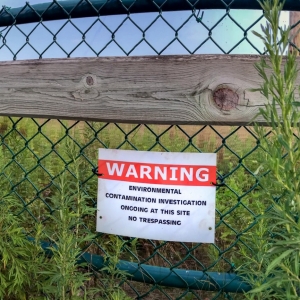Federal Water Tap, June 27: Forest Service Errors Led to New Mexico Wildfire
The Rundown
- The U.S. Forest Service examines mistakes that turned a prescribed burn in New Mexico into the state’s largest-ever wildfire.
- USAID releases a draft version of its contribution to the government’s global water strategy.
- The Bureau of Reclamation asks the public what to do about water in the Colorado River basin.
- The EPA’s internal watchdog surveys Superfund project managers about pandemic-related delays.
- The House and Senate pass a bill allowing victims of Camp Lejeune water contamination to sue the federal government.
And lastly, the Army Corps of Engineers is funding research into the environmental impacts of a new method for purging sediment from reservoirs.
“Fires are outpacing our models and, as the final report notes, we need to better understand how megadrought and climate change are affecting our actions on the ground. We must learn from this event and ensure our decision-making processes, tools, and procedures reflect these changed conditions.” — Randy Moore, chief of the U.S. Forest Service, in the foreword to a report that outlines a series of errors that turned a prescribed fire in New Mexico into the state’s largest wildfire. Weather conditions on the day of the prescribed burn were too risky, and personnel reacted too slowly after the fire started spreading, the report found. On May 20, Moore ordered a moratorium on prescribed burns while the agency undergoes a 90-day review of its procedures.
In context: The Government Set a Colossal Wildfire. What Are Victims Owed?
By the Numbers
31: Number of Superfund sites where cleanup was delayed or exposure to contaminants was lengthened due to the Covid-19 pandemic. That’s according to a survey sent to project managers by the U.S. Environmental Protection Agency’s internal watchdog. The Office of the Inspector General received survey responses from 343 sites.
News Briefs
Preparing for the Colorado River’s Future Planning
Key agreements that govern the operation of the Colorado River’s big reservoirs and water supply cutbacks will expire at the end of 2026.
To prepare for re-negotiating those agreements, the Bureau of Reclamation wants public input on how the process can be more inclusive. Meaning: how all the basin’s groups and people — tribes, cities, farmers, environmental groups, marina owners, states, Mexico — can be heard.
Reclamation also wants to know potential strategies for the updated operating agreements that will be durable in a drying basin.
Send comments to CRB-info@usbr.gov by September 1.
Camp Lejeune Water Contamination
The Senate joined the House in passing a bill that will allow military veterans, their families, and others who were exposed to toxic water at Camp Lejeune to sue the federal government for compensation.
The provision is part of a broader bill to address service member exposure to toxic hazards.
The drinking water at the North Carolina marine base was contaminated with the solvents TCE and PCE, plus benzene and other industrial chemicals from 1953 until 1987.
The Camp Lejeune lawsuits will be filed exclusively in the U.S. District Court for the Eastern District of North Carolina.
Florida Algae Bill Signed
President Biden signed into law the South Florida Clean Coastal Waters Act, a bill that requires an interagency task force to develop a plan to respond to harmful algal blooms in South Florida.
Studies and Reports
Draft Global Water Strategy
The U.S. Agency for International Development released a draft update of its global water strategy.
The document lays out four objectives:
- Increase access to drinking water, sanitation, and hygiene
- Build institutional and financing capacity in partner countries
- Improve watershed health in order to build resilience to climate change
- Link water and peace-building through diplomatic partnerships to reduce conflict
The final, government-wide version is scheduled to be approved this fall.
Comments on the USAID draft are due July 5 and can be submitted at the bottom of this page.
On the Radar
Dredge Effects
The Army Corps of Engineers is funding research into the environmental impacts of a new method for purging sediment from reservoirs.
Called water injection dredging, the method is commonly used to clear sediment buildup in ports. By injecting water at low pressure, it turns sediments into a mass that moves like a fluid and can be transported down current. According to the Army Corps, it has never been employed in a reservoir.
The Army Corps plans to test the dredging method by next summer in Tuttle Creek Lake, a federal flood control reservoir in northeast Kansas.
The $183,000 research project aims to understand how the mobilized sediments affect ecology within the reservoir and downstream.
Sedimentation of reservoirs reduces their capacity to store water.
Colorado River Planning Meeting
The Bureau of Reclamation will hold two virtual public meetings to discuss its planning for post-2026 Colorado River guidelines.
The first meeting will be held July 12 from 10:00 a.m. to 11:00 a.m. MDT. The second meeting will be held July 14 from 10:00 a.m. to 11:00 a.m. MDT. The links will go live when the meetings begin.
Federal Water Tap is a weekly digest spotting trends in U.S. government water policy. To get more water news, follow Circle of Blue on Twitter and sign up for our newsletter.
Brett writes about agriculture, energy, infrastructure, and the politics and economics of water in the United States. He also writes the Federal Water Tap, Circle of Blue’s weekly digest of U.S. government water news. He is the winner of two Society of Environmental Journalists reporting awards, one of the top honors in American environmental journalism: first place for explanatory reporting for a series on septic system pollution in the United States(2016) and third place for beat reporting in a small market (2014). He received the Sierra Club’s Distinguished Service Award in 2018. Brett lives in Seattle, where he hikes the mountains and bakes pies. Contact Brett Walton






Leave a Reply
Want to join the discussion?Feel free to contribute!